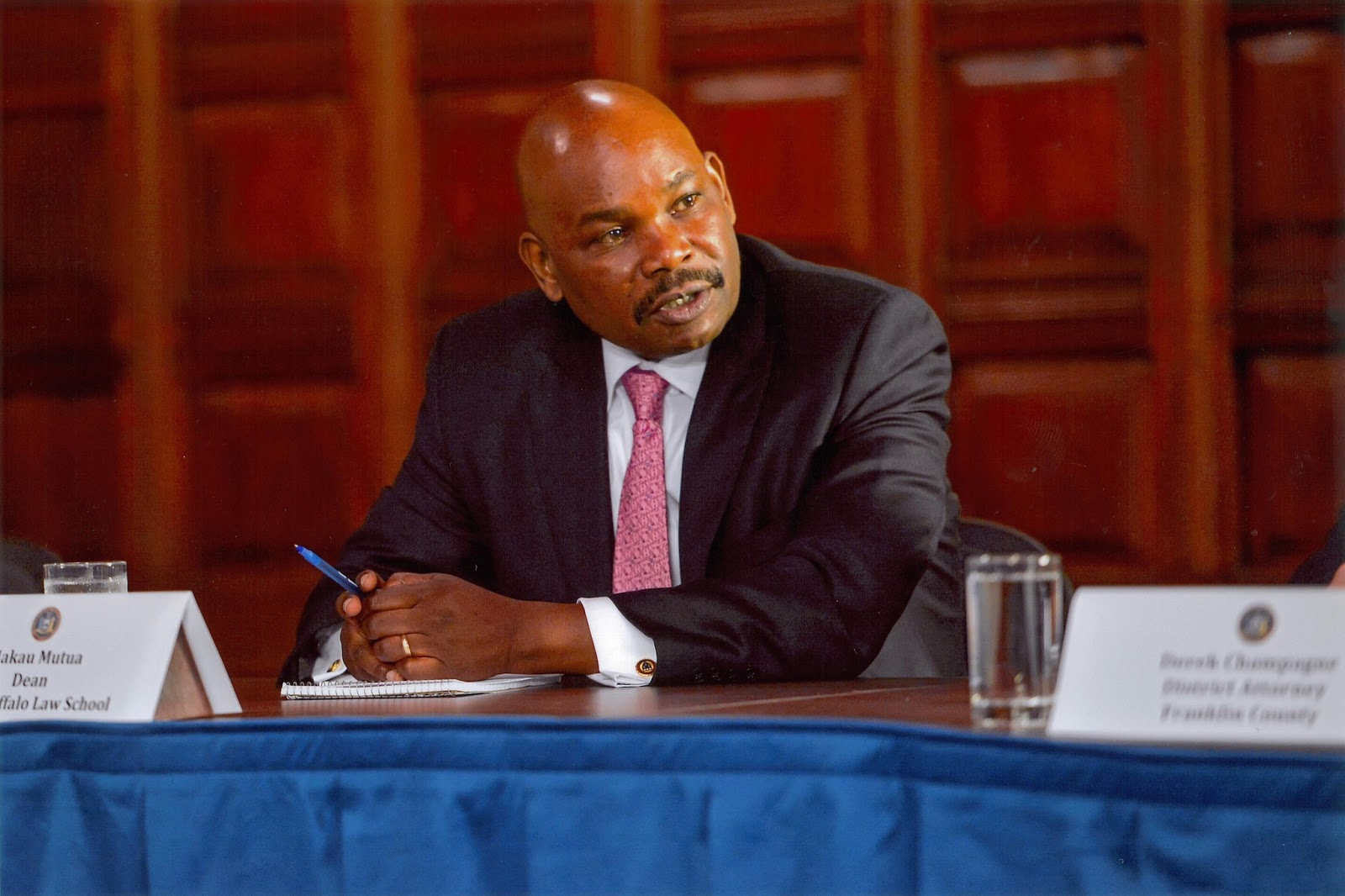Opinion
Makau Mutua: Death Penalty Is Primitive, Has No Place In Modern World

Former Chairperson of the Kenya Human Rights Commission, Makau Mutua, has criticized the sentencing of Joseph Irungu, popularly known as ‘Jowie’, to death for the 2018 murder of Monica Kimani.
Commenting on the matter on Thursday, Mutua asserted that the death penalty has no place in modern society and is contrary to Kenya’s Constitution.
While delivering the sentence on Wednesday, Justice Grace Nzioka indicated that the nature of the killing warranted the highest penalty.
She stated that Jowie was ineligible for rehabilitation as the crime was beyond restitution.
However, Mutua contested the imposition of the sentence saying it contradicts the principles and legal philosophy enshrined in Kenya’s 2010 Constitution.
“It’s [death penalty] jurisprudentially inconsistent with the logic, values, and legal philosophy that undergird Kenya’s 2010 Constitution,” he said.
He argued that regardless of the brutality of the crime, the death penalty remains morally, practically, and philosophically indefensible.
Mutua added that the death penalty does not bring back the victim or deter future killers.
He further added that the death penalty is “vengeful, primitive, and callous” and does not benefit society in any way.
“An eye for an eye makes the entire society blind,” he added.
Kenya is one of 22 African countries that still has the death penalty in its statutes, even though it hasn’t carried out any executions in more than three decades.
Kenya last effected the death sentence in 1987, when prison authorities hanged Hezekiah Ochuka after he was convicted of treason over the 1982 coup attempt.
Currently, 120 countries throughout the world, including 25 in Africa, have abolished the death penalty.
As a result, Kenya is categorized by the United Nations as being “abolitionist de facto,” which refers to a nation that has not executed a convict in at least 10 years.
Penal Code reform
A 2023 report released by the Kenya National Commission on Human Right (KNCHR) indicated that there are over 600 inmates in Kenya who are on death row.
The report dubbed “living with a death sentence in Kenya: prisoners experience of crime, punishment and death row,” launched in January 2023, states that many more prisoners have been sentenced to death in the past decades but have had their sentences commuted to life imprisonment.
In October 2023, Chief Justice Martha Koome presented two bills to Parliament, the Penal Code (Amendment) Bill 2023 and the Criminal Procedure Code (Amendment) 2023 in a move to reform Kenya’s criminal justice system.
The proposed legislation aims to reduce sentences for individuals facing life imprisonment, particularly those convicted of capital offenses to 30 years.
Under the current Kenyan Penal Code, which was drafted in the 1930s, individuals found guilty of murder, robbery with violence, or treason can face the death penalty.
Further, the Bill seeks to cascade the offences of murder and robbery to ensure commensurate punishment for the different offences and to amend the provisions relating to mandatory death penalty in compliance with the judgements of the High Court on the prevailing human rights standards.
The Penal Code reform seeks to incorporate language that aligns with human rights standards, particularly concerning individuals with intellectual and psychosocial disabilities.
In the proposal, Koome is banking on Parliament to approve a change to Section 112A of the Penal Code in subsection (4) that replaces the word “manslaughter” with the words “second-degree murder.”
Kenya Insights allows guest blogging, if you want to be published on Kenya’s most authoritative and accurate blog, have an expose, news TIPS, story angles, human interest stories, drop us an email on [email protected] or via Telegram
-

 Business2 weeks ago
Business2 weeks ago‘They’re Criminals,’ Popular Radio Presenter Rapcha The Sayantist Accuses Electric Bike Firm Spiro of Fraudulent Practices
-

 Business1 week ago
Business1 week agoIt’s a Carbon Trading Firm: What Kenyans Need to Know About Spiro’s Business Model Amid Damning Allegations of Predatory Lending
-

 Business1 week ago
Business1 week agoManager Flees Safaricom-Linked Sacco As Fears Of Investors Losing Savings Becomes Imminent
-

 News1 week ago
News1 week agoWoman Accused in High Defamation Blames AI As Case Exposes How Mombasa Billionaire Mohamed Jaffer Allegedly Sponsored Smear Campaign Linking Joho’s Family To Drug Trafficking
-

 Investigations2 weeks ago
Investigations2 weeks agoDisgraced Kuscco Boss Arnold Munene Moves To Gag Media After Expose Linking Him To Alleged Sh1.7 Billion Fraud
-

 Africa2 weeks ago
Africa2 weeks agoDisgraced Oil Trader Idris Taha Sneaks Into Juba as Empire Crumbles
-

 Investigations2 weeks ago
Investigations2 weeks agoFraud: How Sh235 Million Donor Cash For Nyamira Residents Was Embezzled Through Equity Bank Under Governor Nyaribo’s Watch
-

 Investigations1 week ago
Investigations1 week agoIntelligence Report Links Budding Politician James Mabele Magio To International Scammers Ring










